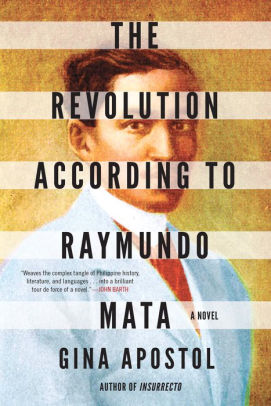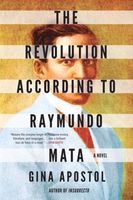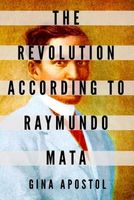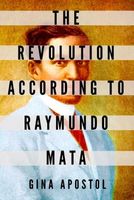- Welcome to FictionDB, Guest
- | My Account
- | Help

The Revolution According to Raymundo Mata — Gina Apostol

The story of Raymundo Mata, a visually impaired member of a 19th century anti-Spanish Philippine revolutionary society, is a polyphonic whirlwind of voices and histories. Told in the form of a memoir, the novel traces Mata's childhood, his education in Manila, his love affairs, and his discovery of the writer and revolutionary, Jose Rizal. Mata's autobiography, however, is de-centered by present-day foreword(s), afterword(s), and footnotes from three fiercely quarrelsome and comic voices: a nationalist editor, a neo-Freudian psychoanalyst critic, and a translator, Mimi C. Magsalin (who alsoappeared as a character in Apostol's novel Insurrecto).
In telling the contested and fragmentary story of Mata, Apostol finds new ways to depict the violence of the Spanish colonial era, and to reimagine the nation's great writer, Jose Rizal, who is considered by many to be the father of Philippine independence and was executed by the Spanish for his revolutionary activities.
The publication of The Revolution According to Raymundo Mata for the first time outside of the Philippines is a literary event. Brilliantly revised and expanded by the author for this edition -- an act of re-creation in perfect keeping with the book's own textual preoccupations -- this novel offers an intoxicating blend of fact and fiction, uncovering lost histories while building dazzling, riotous modes of narrative.
In telling the contested and fragmentary story of Mata, Apostol finds new ways to depict the violence of the Spanish colonial era, and to reimagine the nation's great writer, Jose Rizal, who is considered by many to be the father of Philippine independence and was executed by the Spanish for his revolutionary activities.
The publication of The Revolution According to Raymundo Mata for the first time outside of the Philippines is a literary event. Brilliantly revised and expanded by the author for this edition -- an act of re-creation in perfect keeping with the book's own textual preoccupations -- this novel offers an intoxicating blend of fact and fiction, uncovering lost histories while building dazzling, riotous modes of narrative.
Genres
Click on any of the links above to see more books like this one.


